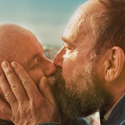
The political nature of Pride and its commercialization are ideas hotly contested each time Pride month comes around. At its origins, Pride had no choice but to stand as a protest.
Among the loudest of those protesters in the United Kingdom was Tom Robinson, a singer from Cambridge who would come to write what some consider Britain’s “national gay anthem”.
Robinson had originally written a song called “Good to be Gay” in the ’60s, which possessed the same underlying messages as its successor, but without the necessary bite. In contrast, his 1975 song “Glad to Be Gay” came about from a perfect storm of influences, cultural pressures, and righteous political anger.
“I’d become politicised after becoming the musician with a theatrical troupe from New York called Hot Peaches, who were very camp,” he told The Guardian. “They exposed me to the notion of being proud of being gay. I also saw the Sex Pistols, who kicked open the doors for the art of confrontation.
How about we take this to the next level?
Our newsletter is like a refreshing cocktail (or mocktail) of LGBTQ+ entertainment and pop culture, served up with a side of eye-candy.
“At the time, the police were regularly targeting London’s oldest gay pub, the Coleherne in Earls Court, on a regular basis. When the editor of Gay News famously tried to take a photograph of one raid, he was charged and fined for obstruction.”
Bits of the song like the hate crime outlined in the third verse weren’t hypothetical, nor exaggerated for effect. These real-life issues and scenes provided the fuel for the writer’s fire.
“There was plenty of scope for anger and venom,” Robinson asserted. “The line about a friend getting beaten up by queer-bashers was true.”
Even with it being quickly banned from airplay by the BBC, the song made a resounding impact on the culture. “Glad to Be Gay” has been performed at countless shows and festivals over the years, with the lyrics being revamped and updated to address different problems facing the queer community as time goes on.
Sing along if you’re, as aforementioned, “Glad To Be Gay”:


















wimo
like it was yesterday
Doug
This was way ahead of its time, I don’t recall this song ever surfacing in the U.S. The fact that the BBC banned it from airplay really shows how far we’ve come since 1975.
DennisMpls
I bought the album not long after it came out (on vinyl of course!). That song was great, but unfortunately the rest of the album wasn’t as good.
Most people don’t know this, but Robinson is not a Kinsey 6. He always identified himself as being on the sexuality spectrum, and more toward the gay side, but he ultimately married a woman and had kids. But that was not any rejection of his true nature, or “going straight,” as some people accused him of doing. He was WAY ahead of his time regarding identity. In those days he used the word “gay” in the way we now use the word “queer.” In his early days he would generally think of himself as bisexual, but ultimately said he was “a gay man who happens to be in love with a woman.”
Like me he’s not fond of labels. The lyrics from another of his songs says it well: “Well if gay liberation means freedom for all, a label is no liberation at all. I’m here and I’m queer and do what I do, I’m not going to wear a straitjacket for you.”
dbmcvey
I heard it on the radio station for the University of Utah back in the late ’70s, but couldn’t find a copy in any record store.
abfab
102.7 W-NEW FM played it quite often and so did NYU and other college stations thru out the northeast.
johnozed
2-4-6-8 Motorway got more airplay, at least on WNEW-FM
ScottOnEarth
Thanks so much for this article. I don’t know how I’d never heard of this song or Tom Robinson but I’m glad I have now. Very intense and poignant song and performance. Just wonderful. Too bad there aren’t such anthems these days that can bring us together as a real community.
Thad
I had heard of Tom Robinson and the song…but I never actually heard the song until now! I immediately had to counter the mood with upbeat songs from my favorite GLBT artists of today.
abfab
Be sure to add the single Uncommon Love to your play list. A stunning duet from Carole King and kd lang. Perfection.
Joshooeerr
“Glad to be Gay” is often referred to (as it is here) as an “anthem” – but it’s actually the opposite: a lament or (technically speaking) a dirge. The lyrics are dripping with irony, sadness and rage, none of which is appropriate for an anthem. The same goes for the music, which is clearly mournful. This explains why the song worked in performance back in the 70s for a very specific audience, but was never widely popular, even among gays, and is largely forgotten. Robinson also appeared to distance himself from the song after he became too closely identified with it, and would be decidedly prickly about it in interviews.
RomanHans
Thank you for this. I’m surprised by how little-known this song is, considering what a strong statement and huge risk it was. We need to be vigilant about our history: before the Benedict Cumberbatch movie, Alan Turing was a footnote just a few LGBTQs knew about.